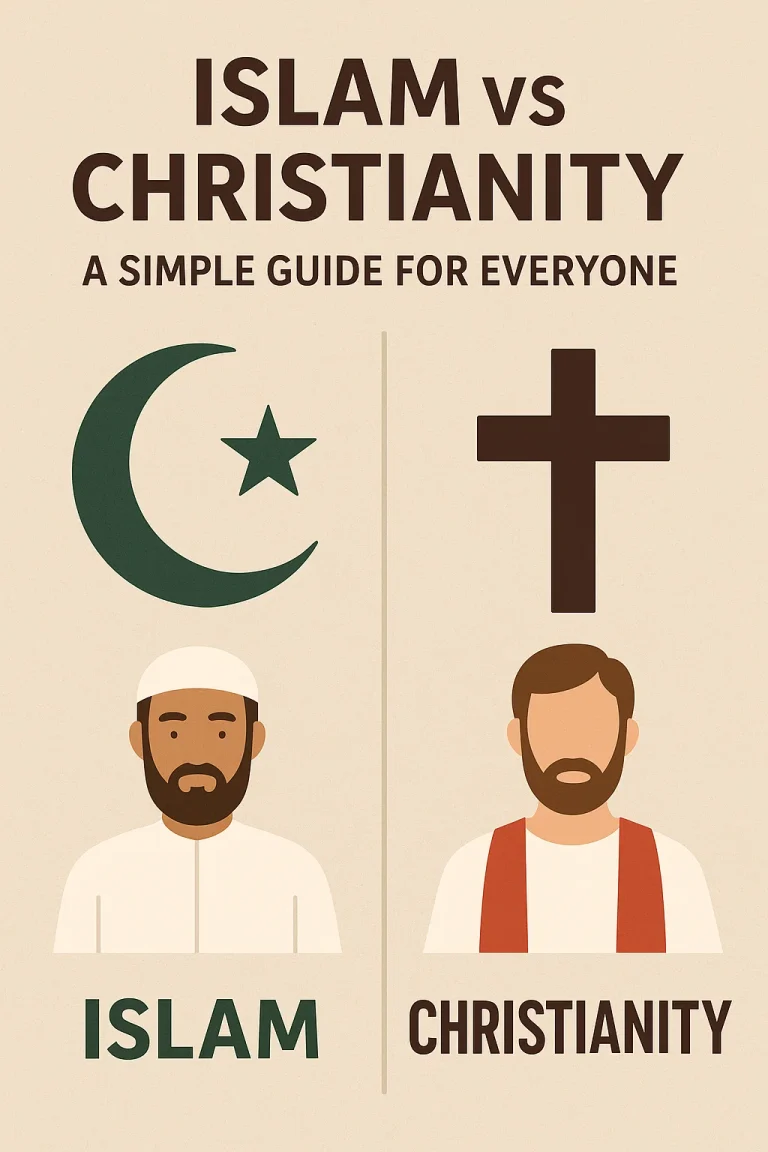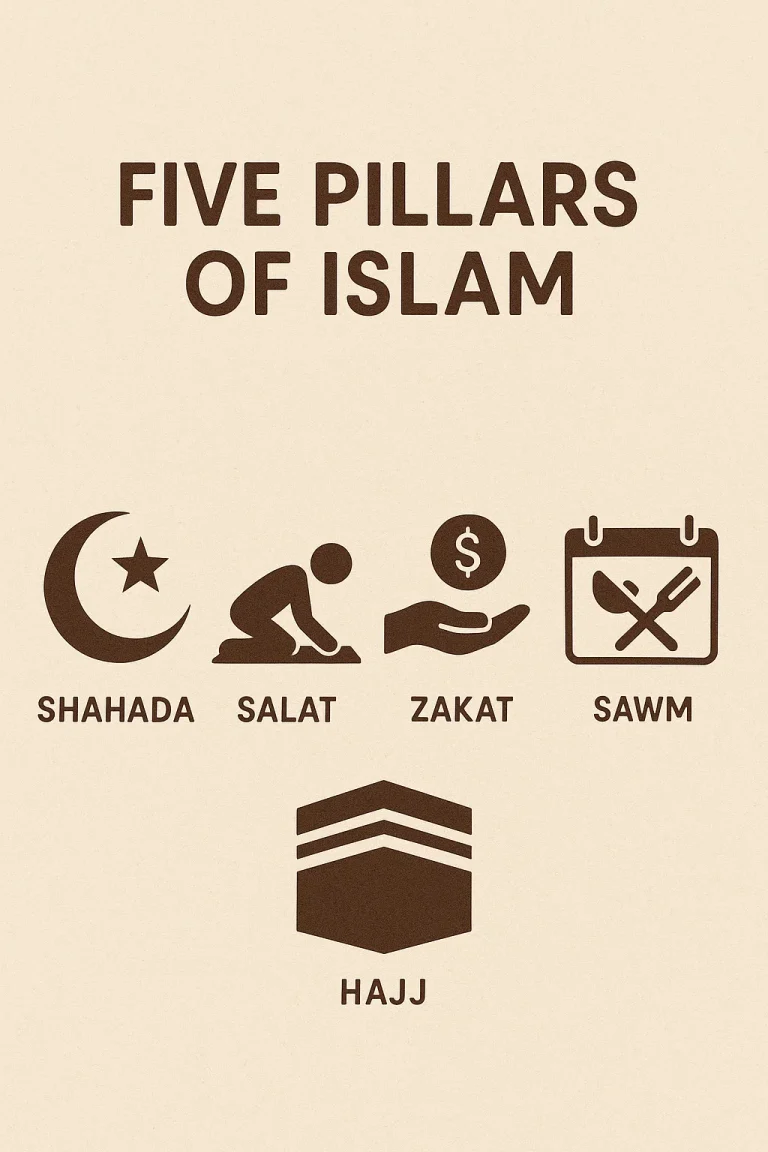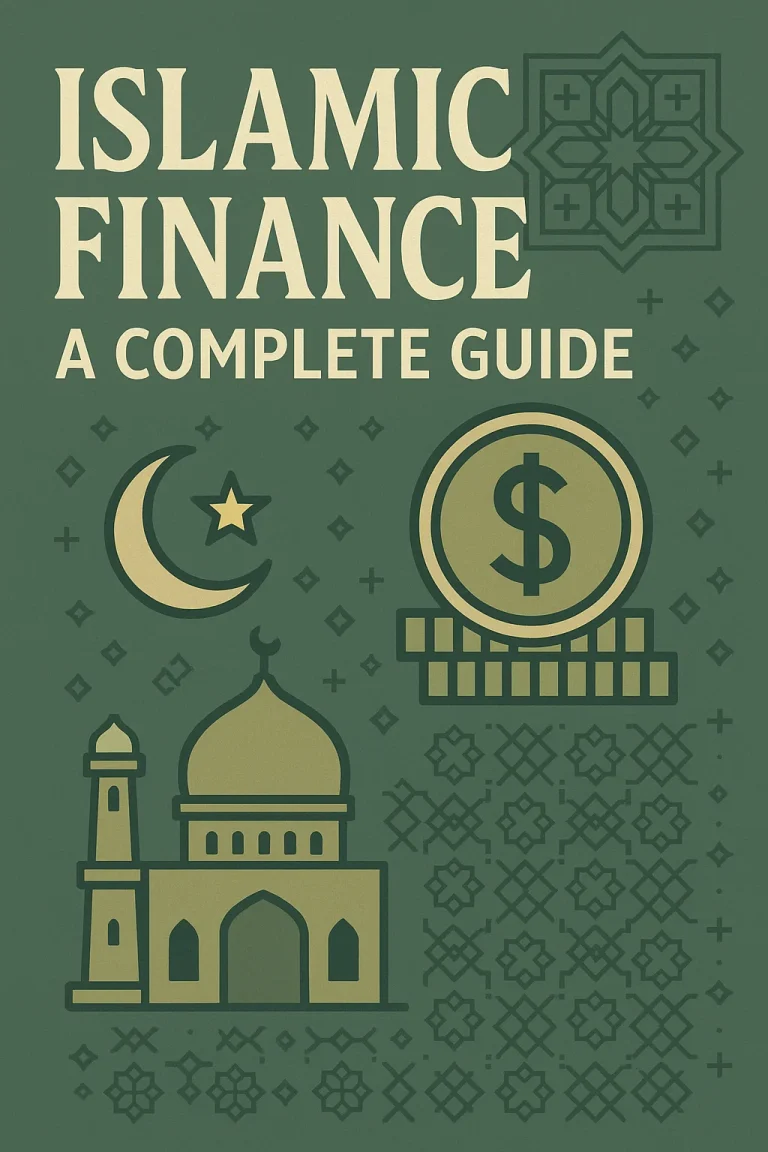Womens in Islam: Roles and Responsibilities
Importance of Women in Faith and Society
Women in Islam have an important place in both faith and society. Islam gave women rights in family, work, property, and education.
Historical Context
These rights were new and rare in many parts of the world 1400 years ago, making Islam revolutionary in protecting women’s dignity and status.
Muslim Women Today
Today, Muslim women make up almost half of the global Muslim population. They play key roles in education, careers, and family life.
Purpose of This Post
This post explains women’s rights, facts, and real examples in a simple and clear way to help readers understand their role.
Women and men are equal in faith and reward, according to Islamic teachings. According to the Quran, both are evaluated based on their actions. Islam values women as mothers, wives, daughters, and contributing members of the community.
The following are important rights in Islamic teachings:
The right to pursue education
- The right to own and manage property
- The right to generate and retain income
- The right to marry with consent
- The right to inherit in accordance with the law
Womens in Islam Islamic law gave women rights that many cultures denied in the past.
Learning
According to the Prophet Muhammad (peace be upon him), every Muslim man and woman has an obligation to learn. In many Muslim nations today, the number of women pursuing education is increasing.
Possession of Real Estate
Women are able to own businesses, homes, and land. No one can take away a woman’s income because it belongs to her fully.
Marriage Rights
Only with the woman’s consent is a marriage deemed lawful. She is entitled to a reasonable dowry, ensuring her dignity and security.
Inheritance Rights
Property can be inherited by women from husbands, parents, or children. Islamic law determines the share in a balanced way.
Facts and Figures on Muslim Womens
| Topic | Example High | Example Low | Note |
| Female literacy rate | Above 95 percent in Malaysia | Below 50 percent in Afghanistan | Source UNESCO |
| Female labor force participation | 47 percent in Indonesia | 15 percent in Pakistan | Source World Bank |
| Women in university | Above 50 percent in Saudi Arabia | Less than 30 percent in Yemen | Source UNESCO |
.Roles of Women in Family
Islam places a high value on family. The roles of mothers and caregivers have been respected by women. According to the Prophet, mothers are the foundation of paradise.
In Islam, daughters are a blessing. There are many benefits to raising daughters with love
Women in Work and Society
Muslim women are entitled to employment. They can work as leaders, educators, physicians, and entrepreneurs.
Examples from today include:
- Indonesian female ministers
- Business executives in the United Arab Emirates and Turkey
- Female physicians in Pakistan and Egypt
Challenges Faced Today
Womens in Islam face challenges in some regions. These challenges are often due to culture, politics, or weak law enforcement rather than religion itself.Main Issues Faced by Women in Islam
Limited Access to Education
In many rural areas, girls still struggle to access quality education, which limits their personal growth and career opportunities.
Lower Job Opportunities
In some countries, women face reduced job opportunities and unequal chances for career development compared to men.
Misuse of Cultural Traditions
At times, cultural traditions are misused against women’s rights, creating barriers that are not aligned with Islamic teachings.
Success Stories of Muslim Women
Bangladesh
Women lead major companies and actively take part in parliament, showing their role in leadership and governance.
Morocco
Reforms in family law have strengthened women’s rights and improved their role in society.
United Arab Emirates (UAE)
Women now serve as ministers, entrepreneurs, and even astronauts, becoming a source of pride and inspiration worldwide.
9.How to Support Womens Rights in Islam
Steps that help Muslim women grow and thrive include
- Provide equal access to education
- Promote safe working spaces for women
- Teach true Islamic values on women rights
- Reform unfair cultural practices
- Share success stories to inspire girls
10.Bulleted Takeaways
- Islam gave women legal and social rights 1400 years ago
- Muslim women make up nearly 1 billion people worldwide
- Education levels are improving but still unequal in some regions
- Women in Islam play roles in family, work, and leadership
- Challenges are more cultural than religious in nature
Frequently Asked Questions (FAQ)
1. What are the primary Islamic rights for women?
In Islam, women are entitled to respect in the home and in society. They have rights to education, property, employment, inheritance, and marriage with consent.
Q.Are men and women equal in Islam?
Indeed, spiritual equality is taught in Islam. Men and women are evaluated and rewarded according to their actions rather than their gender.
Q.Can Muslim women work outside the home?
Yes, women in Islam can work in jobs such as teaching, medicine, business, and leadership, as long as it follows Islamic values.
Q.Do women inherit less than men in Islam?
In some cases, yes. But this comes with balance. Men must provide financial support to their families, while women can keep their own share fully.
Q.What does Islam say about daughters?
Islam honors daughters as blessings. Raising daughters with kindness is seen as a path to great reward in the hereafter.
Q.How are Muslim women doing today?
Many Muslim women are leading in education, politics, science, and business. At the same time, some face challenges due to culture or lack of opportunities.
Conclusion
In Islam, women are revered in both religion and society. Islam established clear guidelines for women’s empowerment, including rights to leadership positions, education, and property. Although there are still obstacles to overcome, many nations have made significant progress.
The reality of women’s rights in Islam is revealed by a fact-based, impartial viewpoint. This subject encompasses human dignity, justice, and development in addition to religion. In Islam, standing by women means creating a more robust and equitable future.






